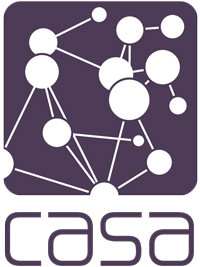CASA0005 is an MSc level module created and delivered by Andrew MacLachlan and Adam Dennett from the Centre for Advanced Spatial Analysis (CASA), University College London (UCL).
The module is a combination of lectures and practicals, with this repository holding the code to generate the student practical handbook, which can be found at: https://andrewmaclachlan.github.io/CASA0005repo
The content covers the principles underlying the conception, representation/measurement and analysis of spatial phenomena. As such, it presents an overview of the core organising concepts and techniques of Geographic Information Systems, and the software and analysis systems that are integral to their effective deployment in spatial analysis. It is concerned with unearthing and understanding the importance of spatial data in a range of applied contexts.
The content discussed within the JOSE paper specifically refers to the module created for the academic year 2020-2021: https://andrewmaclachlan.github.io/CASA0005repo_20202021/. At the conclusion of each year content is copied to a new repository ending with the academic year it was taught, whilst the content applicable to the current academic year remains on the primary repository: https://github.com/andrewmaclachlan/CASA0005repo. This allows the authors and external users to track the development of the content.
The practical material has primarily been developed for MSc (or MRes) level students who have little or no background in GIS, spatial analysis or the R data science language, but have studied in a related field such as: geography, architecture, computer science, statistics, mathematics or planning.
However, there is no requirement to have any background in these disciplines to go through the material and anyone with an interest in spatial analysis in the R data science programming language will be able to successfully complete the practicals.
If you have any questions, reach out to us on Twitter:
It is recommended that students follow the software installation guide within the practical book and work through the material in their own RStudio instance. If they wish to replicate the practical book, see the next section.
If instructors wish to replicate the practical book follow the guidance in External usage
This work is licensed under a Creative Commons Attribution-ShareAlike 4.0 International License.
We welcome contributions to the content, see the how to contribute section in the practical book.
The content of the course changes most years and previous version can be found at the links below.
Course for the academic year 2021 - 2022: https://andrewmaclachlan.github.io/CASA0005repo_20212022/
Course for the academic year 2020 - 2021: https://andrewmaclachlan.github.io/CASA0005repo_20202021/
Course for the academic year 2019 - 2020: https://andrewmaclachlan.github.io/CASA0005repo_20192020/
Provided below are brief descriptions of the main annual updates to the practical material.
Very few updates to the content this year so no new repo was made. Main updates were to exam questions (not public) and new illustrations by Allison Horst were added.
RGDAl is retiring this year, i think most of the content should be fine - https://geocompx.org/post/2023/rgdal-retirement/
Better alignment with other CASA modules:
- moved OLS to supplementary material
- moved some reproducible material to supplementary (e.g. renv)
Removed:
- more non geographic content such as dashboards
- practical 8 on online mapping + more descriptive stats
- elements of GitHub practical
- instructions on citing papers in RMarkdown - this is now on the dissertation template.
- interpolation from the first raster practical
Added
- more info on spatial weights and deciding between Spatial Error Models (SEMs) and Spatially Lagged Models (SLMs)
- more info on creating GWR bandwidths.
- weekly homework tasks.
Changed
- mark scheme, for an open book exam not written assignment.
- Github classroom for submission of the exam.
- all of ArcGIS content removed and replaced with R and QGIS (open source)
- set clear weekly homework tasks
- custom styling of the bookdown website
- revision of nearly all code, moving towards the
tidyverseand piped (%>%) syntax - more focus on
dplyrand other data wrangling/tidying tools (e.g.Janitor)
- all material moved to bookdown
- majority of practicals moved to R
- addition of raster practicals
- revised assignment markscheme and assignment requirements


